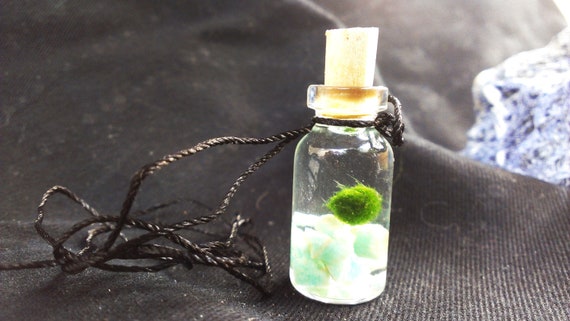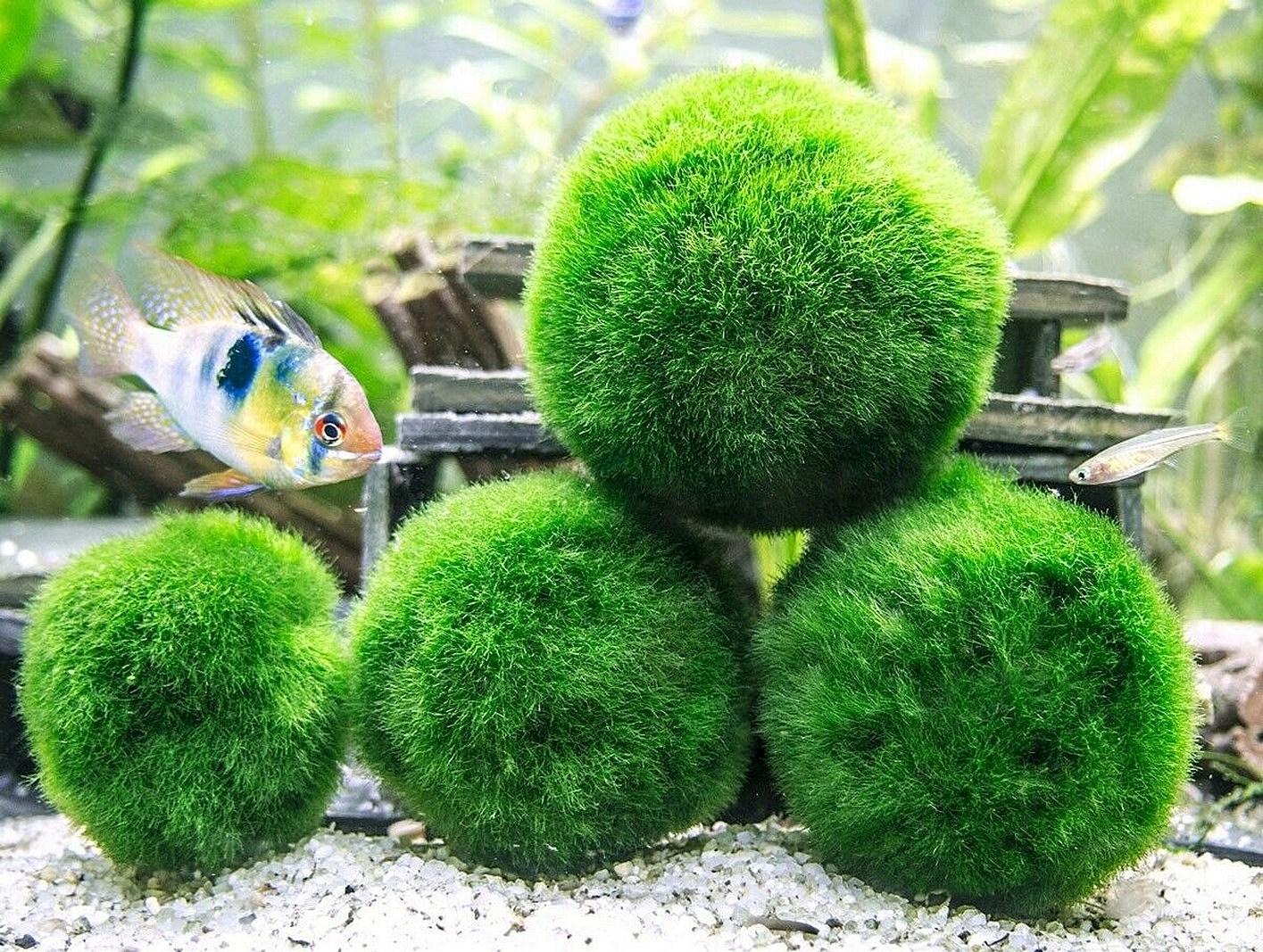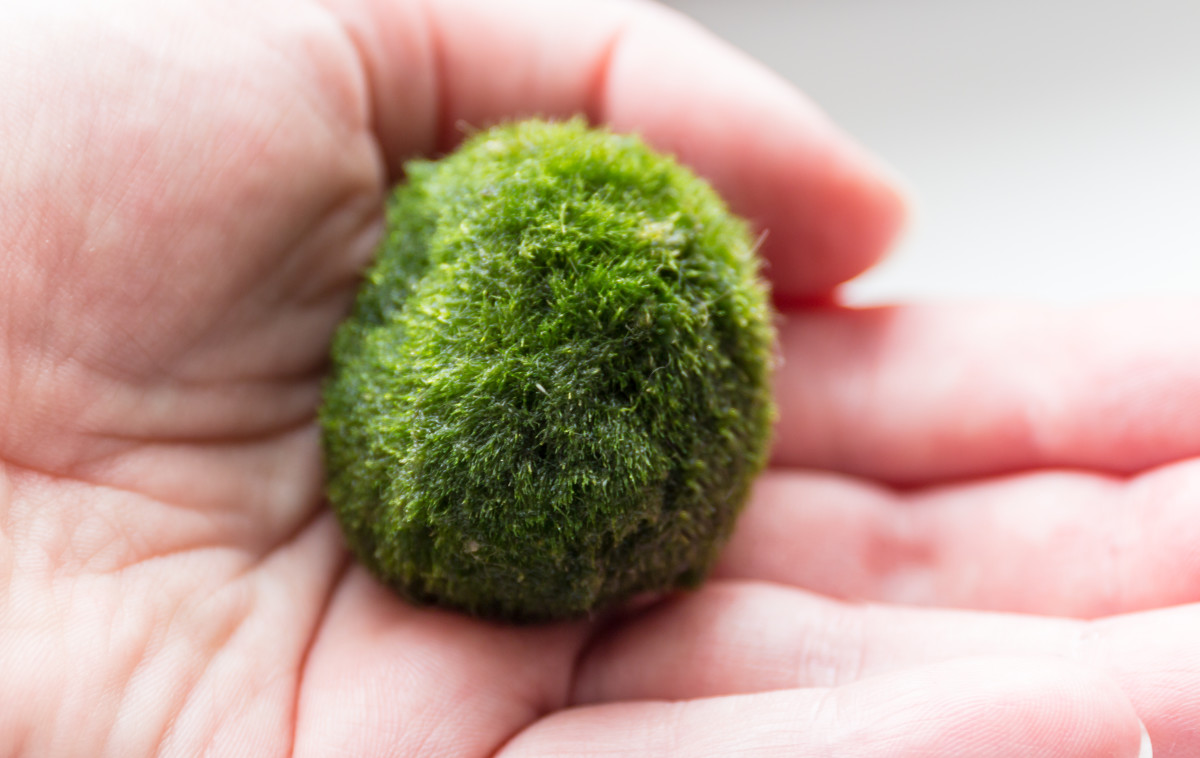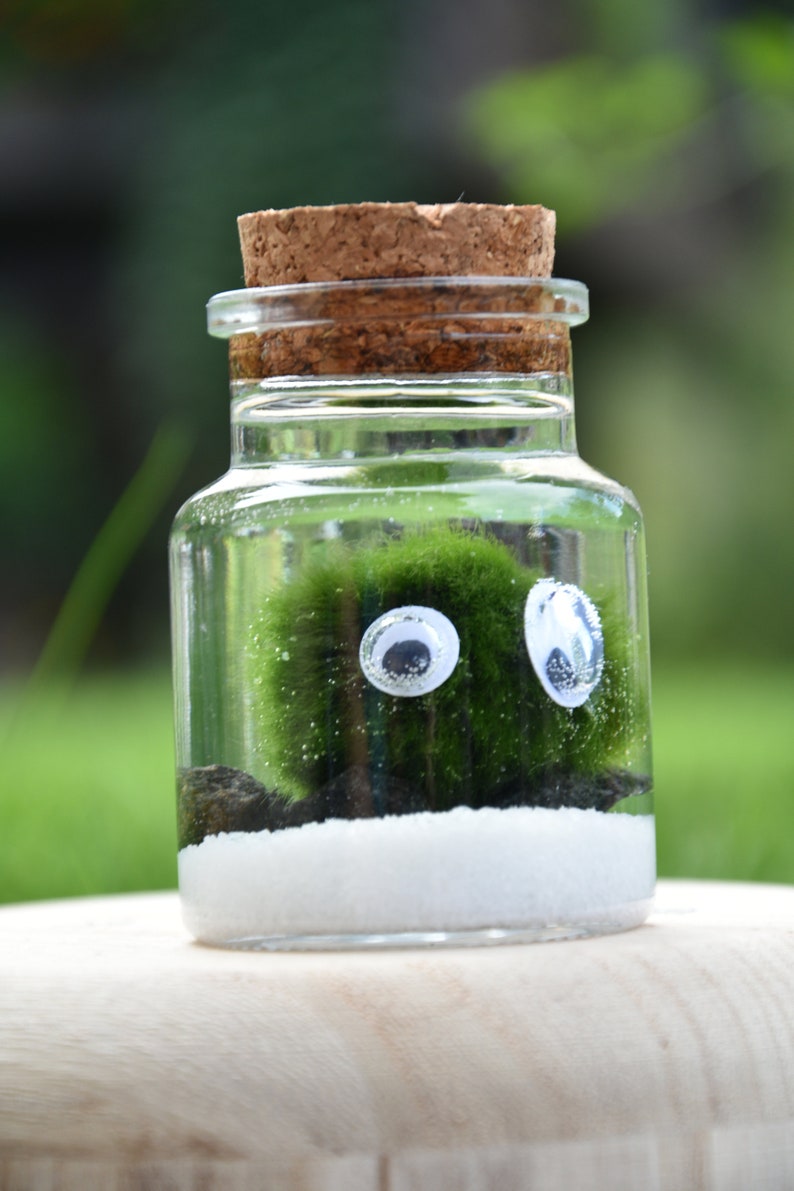
Living baby pet marimo moss ball in real by EclecticZenMarimo

Remember pet rocks? Yeah, it's time to upgrade. Meet the marimo moss ball.These pet-friendly balls are often referred to as moss balls, but they're actually not moss at all. The marimo ball is a small algae colony known as Aegagropila linnaei that's native to the lakes of Japan and Northern Europe. "Mari" means ball, and "mo" translates to algae in Japanese.Marimo are often given.
Moss Balls Aquarium

How To Care For Your Pet Moss Ball. All you need to do to keep your moss ball alive is change its water every two weeks or so. In addition to this, you'll want to try and keep it round. To make this happen, all you need to do is give the water a swirl every so often. The swirl of water helps to emulate the waves of water in its natural.
Marimo Moss Ball Aquarium, Marimo Moss Ball Terrarium, Mason Jar Terrarium, Terrarium Ideas

Table: Lighting Guidelines for Moss Ball Pets; Maintaining the Shape of Your Moss Ball Pet; Dealing with Color Changes in Moss Ball Pets. Recommended Actions for Color Changes in Moss Ball Pets: Moss Ball Pet Reproduction and Growth. Creating the Right Environment; Providing Adequate Lighting; Maintaining Proper Water Movement; Moss Ball Pets.
Minnesota Pet Store Moss Balls May Carry Invasive Species!

What Are Moss Ball Pets? Detailed Guide! Moss balls make unique and low-maintenance pets. They do not need to be fed, and only require occasional maintenance such as water changes and cleaning. They are also known for their ability to filter water and improve water quality in A Aquarium.
13 Benefits of the Marimo Moss Ball PetHelpful

In reality Marimo "moss balls" (Aegagropila linnaei) are a type of green algae that naturally grows into a spherical shape. They are native to Japan and Northern Europe where they grow in cold freshwater lakes.
Caring For A Moss Ball Pet Is A Surprisingly Wholesome And Endearing Hobby in 2022 Moss balls

According to Balls Of Moss, Moss Balls can live in our homes in temperatures between 63°F (17°C) and 73°F (23°C). But Marimo Balls don't tolerate well temperatures above 77°F (25°C). If you have Marimo Moss Balls in the same fish tank with other fish, check the fish temperature requirements. If you keep your Marimo Balls on their own.
second best pet EVER!! it would take a little less attention then Quesa... XD Marimo, Marimo

In Japan, moss balls are treated more like pets and passed down from generation to generation as heirlooms. These moss balls grow bigger as they pass on from generation to generation. Japanese people have even developed ways to keep moss balls healthy and thriving in aquariums! Moss balls are believed to be good luck since they are long-lasting.
Caring For A Moss Ball Pet Is A Surprisingly Wholesome And Endearing Hobby Indie88

November 23, 2022 by Celeste Yarnall If you're looking for a low- maintenance pet that's unique and interesting, a moss ball could be a good option for you. These small, round balls of moss are easy to care for and can add a touch of greenery to your home. Here's what you need to know about caring for a moss ball pet.
Why You Need a Moss Ball Pet and How to Care for It Moss Ball Pets™

Pet Moss Ball (1 - 60 of 223 results) Price ($) Shipping All Sellers Sort by: Relevancy 1 Artificail Marimo Moss Ball | Weighted | Aquarium Decoration (629) $6.99 FREE shipping Zo Java Moss Ball Terrarium Kit for Cute Office Desk Decor Indoor Plant Gifts For Her Birthday DIY Craft Kits Unique Christmas Day Gifts (8.1k) $35.00 FREE shipping
Junior Moss Ball Pet™ (6 to 8 Years of Age) Moss balls, Moss, Marimo moss ball

Plant care Aquarium requirements How to plant your Marimo moss ball Maintenance and care Propagation Aquarium mates and compatibility Apperance Don't let the name fool you—the moss ball is actually a type of algae. They are almost perfectly spherical and vibrant green in color when thriving.
Six Amazing Benefits Of The Marimo Moss Ball Pet Moss Ball Pets Moss Ball Pets™

Their fun shape, movement, and minimal care requirements make marimo moss balls an attractive addition to plant bowls and freshwater aquariums. Not actually a moss, marimo balls (Aegagropila linnaei, also known as Cladophora balls and lake balls) are rare spherical-shaped, noninvasive algae with a velvet-like appearance. The species are native to Lake Akan in Japan, where they are designated.
13 Benefits of the Marimo Moss Ball PetHelpful

Benefits of the Marimo Aside from its unique appearance, here are some benefits of having a Marimo moss ball in your aquarium. Sucks Up Nitrates and Other Nasties Provides Some Oxygen Helps Prevent Excess Algae Growth Harbors a Good Amount of Beneficial Bacteria Requires Almost Zero Maintenance Easily Adapts to High pH
Everything You Need To Know About Caring For A Moss Ball Pet CelestialPets

The presence of zebra mussels hiding in marimo moss balls were discovered in early March 2021 (perhaps earlier) in the US. These mussels are highly invasive and have been found attached to marimos in recent reports. They can be extremely difficult to see, as they range in size from an adult fingernail down to a sesame seed.
Pet Plant Could You Love a ‘Marimo’ Moss Ball?

Marimo Balls or Moss Balls as they are sometimes called, are cute little algae that are said to bring good luck and are considered a Japanese national treasure. Marimo can be raised as pets by themselves, or can be put into aquariums to help ward off unwanted algae blooms.
Marimo Marimo Moss Ball Pet Plant Terrarium Home Decor Etsy

Marimo [a] (also known as Cladophora ball, moss ball, moss ball pet, or lake ball) is a rare growth form of Aegagropila linnaei (a species of filamentous green algae) in which the algae grow into large green balls with a velvety appearance. The species can be found in a number of lakes and rivers in Japan and Northern Europe. [1]
Unmasking The Mysteries of Moss Ball Pets Moss balls, Moss, Marimo moss ball

Here is a list of some of the best marimo ball names: Alfalfa Aspen Bamboo Bay Leaf Bergamot Birch Bluebell Bramble Butternut Camellia Cedar Chamomile Chestnut Cinnamon Clover Coneflower Coral Bells Cottonwood Cranberry Cypress Daisy
